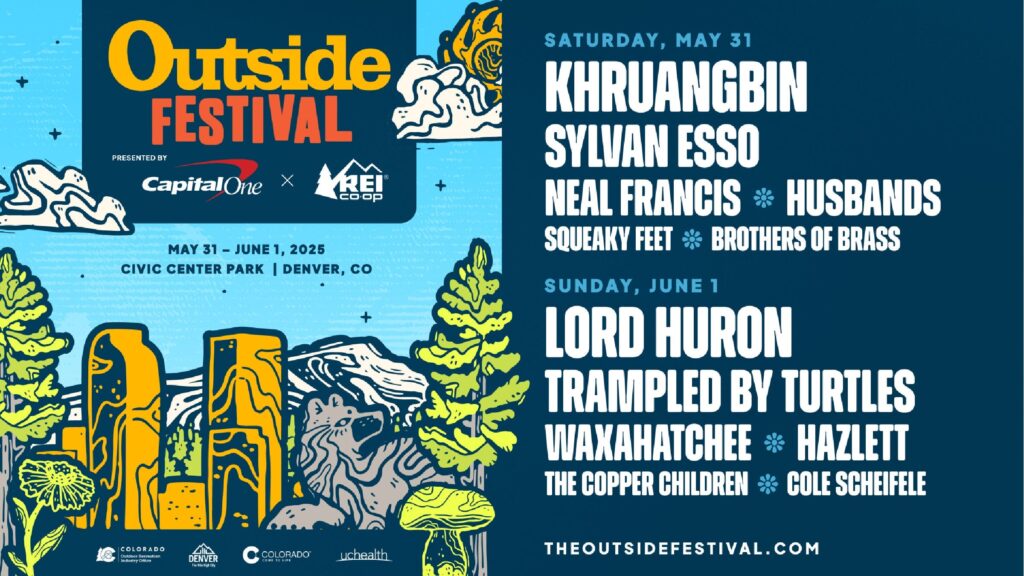As the landscape of mountain racing continues to evolve, the Outside Festival, taking place in downtown Denver’s Civic Center Park on May 31-June 1, 2025, offers a glimpse into the growing intersection of ultra-running, outdoor culture, and community engagement. Following the successful turnout of its inaugural event, which attracted around 18,000 participants, this festival promises to cater to the specific needs of experienced trail and ultra-runners by providing opportunities for learning, networking, and gear exploration—elements crucial for adapting training for mountain races of any distance.
The festival will feature an assembly of influential athletes and renowned speakers, which could provide valuable insights into race strategies and physiological responses specific to mountainous terrains. For instance, taking cues from veteran athletes can assist established runners in refining their pacing strategies to tackle high-elevation courses, particularly in races where acclimatization is vital. While such events aim to entertain, they serve an additional purpose: they are platforms for discussion around emerging trends in performance, nutrition, and recovery—areas that are essential for maintaining competitive edges in mountain ultra running.
In lieu of the festival, the Outside Summit precedes the main events on May 29-30, and is expected to draw key players from the outdoor industry, including elite ultra-runners. Having a full day dedicated to programming focused on networking and knowledge-sharing can provide connections that often lead to collaborations or sponsored gear testing. An understanding of new gear innovations is critical; conversing with manufacturers about trail shoes, garments, and hydration systems designed specifically for harsh mountain environments might be advantageous. The festival will also feature extensive demonstrations from leading brands known for their commitment to quality and performance, which helps athletes make informed choices about gear durability and weight when training or racing.
Significant developments in race qualifications also merit attention. As seasoned athletes prepare for prestigious mountain ultra events such as the UTMB, keeping abreast of changing qualification standards can influence both training and racing strategies. For example, qualifying for renowned events might become more competitive or demanding, necessitating a careful selection of preliminary races. Engaging with fellow competitors and leaders in meetings and panels during the festival can provide up-to-the-minute information regarding these qualification pathways. Understanding how strategies for pacing, nutrition, or elevation gain differ among the competitive field could be crucial in shaping one’s preparation for necessary qualifying races.
In terms of performance, assessing the experiences of record-breaking athletes will shed light on what differentiates elite performances in mountainous ultra-distances from conventional racing. Conversations about pacing strategies, hydration management, and gear choices tailored to elevation changes will provide insights that can elevate personal performance. Additionally, understanding how these athletes adapt their nutrition plans in relation to elevation gains and losses brings an evidence-based approach to fueling during long runs, which is paramount for maintaining energy levels and preventing fatigue.
The festival will feature an increased focus on diverse activities tailored to active lifestyles, including climbing experiences, yoga classes, and skills workshops. These can offer unique training adjuncts that enhance core strength, balance, and flexibility—qualities particularly needed for technical mountain trails. While serious trail runners typically prioritize mileage and elevation in their training, complementary activities such as yoga can be pivotal in boosting recovery and mental resilience, factors that are often overlooked but critical for managing long-distance efforts in challenging terrain.
Early-bird ticket access and VIP packages also cater to dedicated participants interested in maximizing their experiences, offering exclusive opportunities for interaction with leaders in the ultrarunning community. For experienced runners, this can not only facilitate networking but also offer access to specialized sessions focused on managing race logistics and planning. The logistics of travel, crew support, race day nutrition, and pacing can be discussed in-depth with peers and experts alike, providing a more rounded approach to race preparation.
As the event approaches, it may also set a precedent for future gatherings aimed at uniting athletes and industry experts. Whether strategizing for competitive positioning in ultra-events or learning best practices in the realm of gear and nutrition, the Outsider Festival creates a space for those immersed in the rigors of mountain racing to gather, reflect, and refine their approaches.
For runners preparing for serious mountain ultras, one essential takeaway is to remain adaptable in both training and race strategy. Understanding the evolving nature of race qualifications and gear while actively engaging with the community fosters a learning environment that can significantly enhance performance outcomes. Seek out opportunities for growth and connection, and always be willing to recalibrate your approach as you immerse yourself in the latest advancements and insights shared by the broader ultrarunning community.
